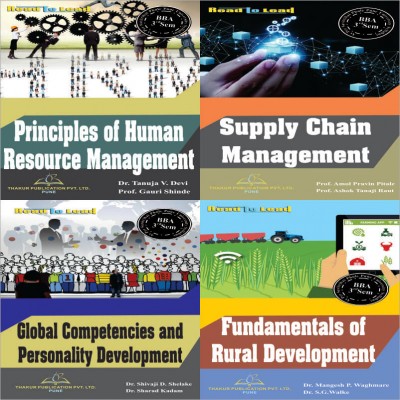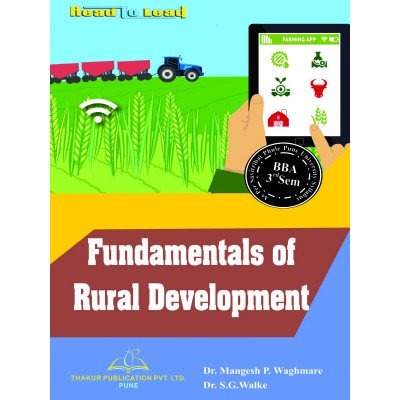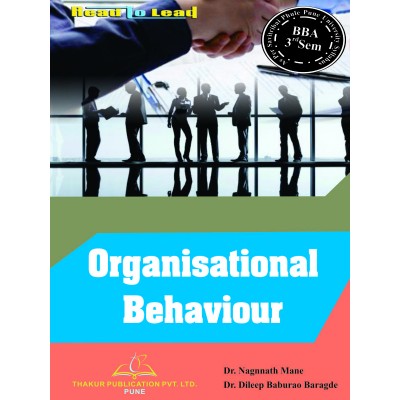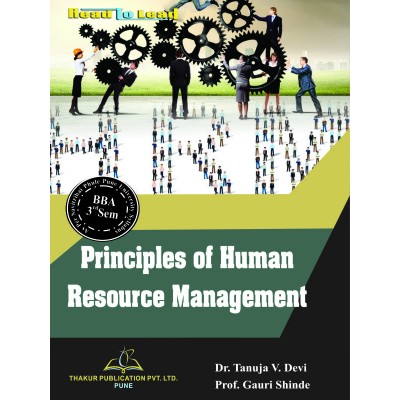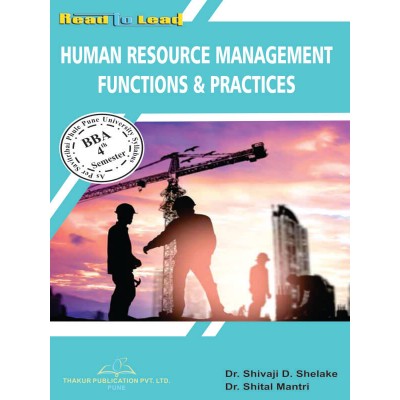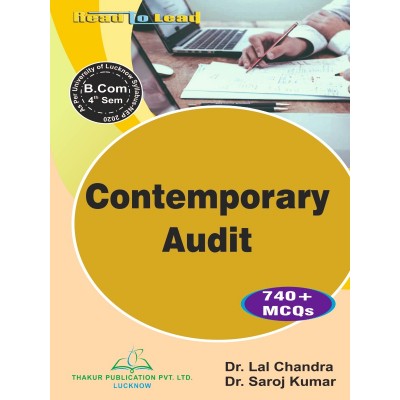Supply Chain Management
Tax excluded
ISBN- 978-93-6180-706-0
AUTHORS-Dr. kalpana Vaidya , Prof. Vishal Ekatpure , Upendra Dinesh Gawali
Syllabus
(BBA) Major Mandatory 8
Supply Chain Management
|
Unit
|
Title of Contents
|
No. of Lecture Hours
|
|
1 |
Fundamentals of Supply Chain Management
1.1 Definition, Objectives, and Importance of SCM– Definition and Key Goals of Supply Chain Management– Importance in Enhancing Efficiency and Competitiveness 1.2 Basic Concepts and Role of SCM in Business– Core Concepts of SCM– Role in Improving Business Performance and Customer Satisfaction 1.3 Components of a Supply Chain– Entities: Suppliers, Manufacturers, Distributors, Retailers, Customers– Flows: Information, Product, and Cash 1.4 Decision Phases and Process View of SCM– Strategic, Tactical, and Operational Decision Phases– Process View: Cycle and Push/Pull Perspectives 1.5 Supply Chain Flows and Structure– Upstream and Downstream Supply Chains– Role in Integration and Coordination |
15
|
|
2 |
Supply Chain Network Design
2.1 Introduction to Network Design– Role in Supply Chain Performance– Drivers and Considerations (Strategic, Technological, Operational) 2.2 Cost vs Responsiveness Trade-off – Balancing Efficiency and Service Levels 2.3 Designing Distribution Networks– Centralized vs Decentralized Systems– Direct Shipping, Cross-docking, Transshipment Models 2.4 Facility Location and Capacity Allocation– Qualitative and Quantitative Location Factors– Gravity Location Models and Centre of Gravity Method 2.5 Network Optimization Strategies– Use of Data Analytics and Simulation– Strategic Placement of Warehouses and Hubs |
15
|
|
3 |
Supply Chain Operations & Coordination
3.1 Introduction to Supply Chain Operations– Definition, Objectives, and Key Processes– Types: Push vs Pull, Make-to-Stock vs Make-to-Order 3.2 Key Operational Drivers– Facilities, Inventory, Transportation, Information, Sourcing, Pricing 3.3 Supply Chain Planning and Control– Demand Forecasting, Aggregate Planning, Master Scheduling– Inventory Control: EOQ, Safety Stock, JIT, VMI 3.4 Distribution and Performance Measurement– Logistics Planning and KPIs 3.5 Supply Chain Coordination– Importance of Coordination– Bullwhip Effect: Causes and Mitigation– CPFR, Contracts: Buy-back, Revenue Sharing, Quantity Flexibility |
15
|
|
4 |
Current Trends & Challenges in Supply Chain Management
4.1 Industry 5.0 and Digital Transformation– Technologies: AI, IoT, Blockchain 4.2 Green and Sustainable Practices– Eco-friendly Operations, Waste Reduction, Sustainable Sourcing 4.3 Globalization and International SCM– Managing Global Logistics and Regulations – Cultural and Operational Challenges 4.4 Risks and Resilience– Identifying Disruptions and Building Adaptive Supply Chain Management 4.5 Ethics and Social Responsibility– Ethical Practices, Transparency, and CSR in Supply Chain Management |
15
|
Syllabus
(B.Com - BM) Major Mandatory 8
Supply Chain Management
|
Unit
|
Title of Contents
|
No. of Lecture Hours
|
|
1 |
Fundamentals of Supply Chain Management
1.1 Definition, Objectives, and Importance of SCM– Definition and Key Goals of Supply Chain Management– Importance in Enhancing Efficiency and Competitiveness 1.2 Basic Concepts and Role of SCM in Business– Core Concepts of SCM– Role in Improving Business Performance and Customer Satisfaction 1.3 Components of a Supply Chain– Entities: Suppliers, Manufacturers, Distributors, Retailers, Customers– Flows: Information, Product, and Cash 1.4 Decision Phases and Process View of SCM– Strategic, Tactical, and Operational Decision Phases– Process View: Cycle and Push/Pull Perspectives 1.5 Supply Chain Flows and Structure– Upstream and Downstream Supply Chains– Role in Integration and Coordination |
15
|
|
2 |
Supply Chain Network Design
2.1 Introduction to Network Design– Role in Supply Chain Performance– Drivers and Considerations (Strategic, Technological, Operational) 2.2 Cost vs Responsiveness Trade-off – Balancing Efficiency and Service Levels 2.3 Designing Distribution Networks– Centralized vs Decentralized Systems– Direct Shipping, Cross-docking, Transshipment Models 2.4 Facility Location and Capacity Allocation– Qualitative and Quantitative Location Factors– Gravity Location Models and Centre of Gravity Method 2.5 Network Optimization Strategies– Use of Data Analytics and Simulation– Strategic Placement of Warehouses and Hubs |
15
|
|
3 |
Supply Chain Operations & Coordination
3.1 Introduction to Supply Chain Operations– Definition, Objectives, and Key Processes– Types: Push vs Pull, Make-to-Stock vs Make-to-Order 3.2 Key Operational Drivers– Facilities, Inventory, Transportation, Information, Sourcing, Pricing 3.3 Supply Chain Planning and Control– Demand Forecasting, Aggregate Planning, Master Scheduling– Inventory Control: EOQ, Safety Stock, JIT, VMI 3.4 Distribution and Performance Measurement– Logistics Planning and KPIs 3.5 Supply Chain Coordination– Importance of Coordination– Bullwhip Effect: Causes and Mitigation– CPFR, Contracts: Buy-back, Revenue Sharing, Quantity Flexibility |
15
|
|
4 |
Current Trends & Challenges in Supply Chain Management
4.1 Industry 5.0 and Digital Transformation– Technologies: AI, IoT, Blockchain 4.2 Green and Sustainable Practices– Eco-friendly Operations, Waste Reduction, Sustainable Sourcing 4.3 Globalization and International SCM– Managing Global Logistics and Regulations – Cultural and Operational Challenges 4.4 Risks and Resilience– Identifying Disruptions and Building Adaptive Supply Chain Management 4.5 Ethics and Social Responsibility– Ethical Practices, Transparency, and CSR in Supply Chain Management |
15
|














